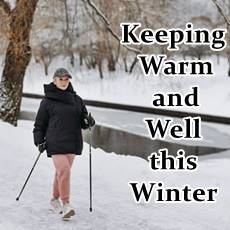Vocabulary Protects Against Cognitive Decline
Keeping your mind sharp to fend off Dementia
Fact Checked
×All the content published in our website is fact checked to validate its accuracy.
Visit our guidelines web page to learn more about our strict processes regarding how we review our content's sources: reliable and reputable journals, media websites, universities, colleges, organizations, and professionals.
Our articles are based on scientific evidence, and the references are included in its footnotes, which are clickable links to sound scientific papers.
First published: 06. Dec.2024
Overview
A rich vocabulary may help to protect you against cognitive impairment. Several studies have shown that poor vocabulary is an indicator of mental decline.
Taking part 3 to 4 times a week in "cognitively stimulating leisure activities" like playing chess, doing crossword puzzles, reading, and having hobbies helps to maintain your cognitive abilities and slow down age-related decline.
References and Further Reading
(1) Cristina Lojo-Seoane, David Facal, Onesimo Juncos-Rabadan y Arturo X. Pereiro, (2020). El nivel de vocabulario como indicador de reserva cognitiva en la evaluación del deterioro cognitivo ligero. Anales de psicología, October 2014. 2014, vol.30, n.3, pp.1115-1121. ISSN 1695-2294. https://dx.doi.org/10.6018/analesps.30.3.158481
(2) Park H, Chey J, Lee J., (2017). Vocabulary Knowledge is Not a Predictor of General Cognitive Functioning in Elderly People with Very Low Educational Attainment. Dement Neurocogn Disord. 2017 Mar;16(1):20-25. doi: 10.12779/dnd.2017.16.1.20. Epub 2017 Mar 31. PMID: 30906366
(3) Kavé, G. , (2024). Vocabulary changes in adulthood: Main findings and methodological considerations. International Journal of Language & Communication Disorders, 59, 58–67. https://doi.org/10.1111/1460-6984.12820
(4) Demetriou E, Holtzer R., (2017). Mild Cognitive Impairments Moderate the Effect of Time on Verbal Fluency Performance. J Int Neuropsychol Soc. 2017 Jan;23(1):44-55. doi: 10.1017/S1355617716000825. Epub 2016 Oct 17. PMID: 27748216
(5) Lee, J., Kim, J. & Valdivia, D.S., (2024). A Longitudinal Analysis of the Relationship Between Different Levels of Cognitively Stimulating Leisure Activity and Cognitive Function Among Older Adults with MCI. J Cogn Enhanc 8, 257–270 (2024).
About this Article
Vocabulary Protects Against Cognitive Decline, A. Whittall
©2024 Fit-and-Well.com. First Published: 06.Dec.2024. Update scheduled for 06.Dec.2027. https://www.fit-and-well.com/wellness/vocabulary-protects-against-cognitive-decline.html



